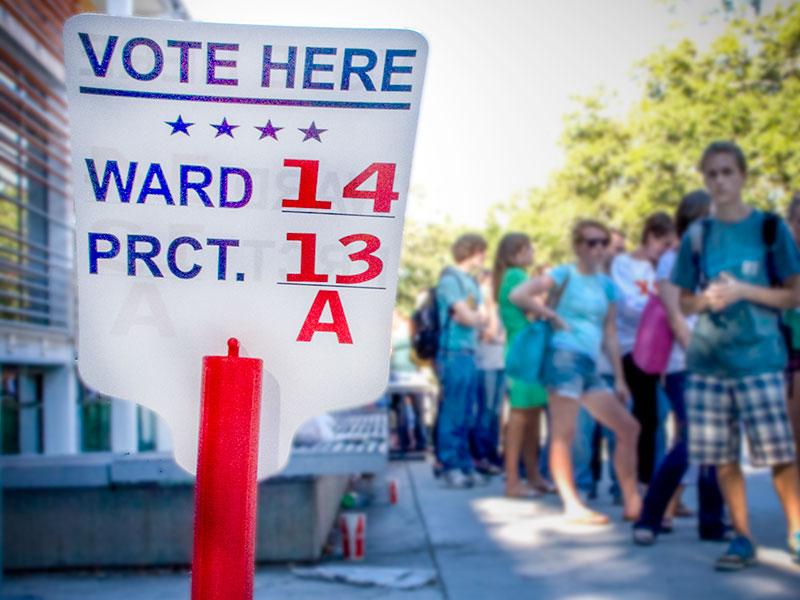Tulane poll finds New Orleans poised to elect first female mayor
In the race to become the next mayor of New Orleans, LaToya Cantrell is far ahead of her rivals with Desiree Charbonnet in second place and Michael Bagneris in a distant third place, according to a new Tulane University poll.
However, more than a quarter of voters (28 percent) don’t know how they’ll vote in Saturday’s election, according to the poll of 521 Orleans Parish residents conducted by Mirya Holman and J. Celeste Lay, Tulane associate professors of political science.
The poll found: 36 percent (± 2 percent) have voted for or intend to vote for Cantrell; 26 percent (± 2 percent) favor Charbonnet; 11 percent (± 1 percent) support Bagneris; 7 percent prefer Troy Henry (± 1 percent) and approximately 10 percent of voters support other candidates.
Residents said the top issues facing New Orleans are crime and assuring public safety; repairing and maintaining flood protection systems; and strengthening the public school system.
“Respondents who are most concerned about crime split their votes across the top three candidates, which is not surprising, given that all three have focused on crime in their campaigns,” said Lay, associate chair of political science. “Cantrell has an edge among those concerned about race relations in the city and affordable housing, while voters who listed attracting businesses and jobs to New Orleans prefer Bagneris. Charbonnet doesn’t appear to have a group of single issue-oriented voters who are supporting her. Bagneris and Charbonnet both receive a higher share of those concerned with flooding than did Cantrell.”
Among African-American voters, the race is much tighter between Charbonnet (30 percent) and Cantrell (35 percent), but Cantrell is receiving a larger share of the white vote (38 percent). Women, who make up the majority of registered voters and regular voters in New Orleans, are most likely to support Cantrell (39 percent) and unlikely to support Bagneris (6 percent). Men are about 10 percent more likely to support Bagneris (17 percent).
Cantrell’s supporters were most likely to mention her experience. Charbonnet supporters cited her reputation and qualifications. About 5 percent of their supporters specifically mentioned that electing a woman as mayor was important to them.
The election will likely be decided in a runoff as no candidate has a majority of voters’ support. Respondents who support Henry are most likely to select Charbonnet as their second choice.
“The second choice for Bagneris voters, however, is evenly split between Cantrell and Charbonnet, suggesting that if Cantrell and Charbonnet head into a runoff, they will face a tight race, focused on winning Bagneris voters,” Holman said. “Unless undecided voters end up supporting candidates in very different proportions as those who have made up their minds, it looks very likely that New Orleans will elect its first female mayor in its 300-year history.”
The survey was conducted online and distributed through Focus Group Testing LLC from Sept. 28 to Oct. 11; 72 percent of respondents completed the survey after Oct. 5. The Focus Group Testing database consists of 2,445 Orleans Parish residents who were all invited to take the survey. The survey sample was weighted by the race and gender of the electorate of the last two mayoral races.

